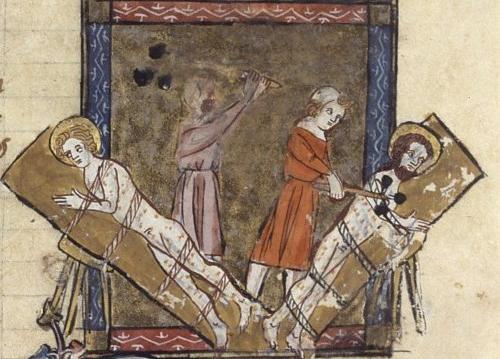
Wednesday, December 16, 2020 –
O boy! It is that time of year again! What time is that? Time for the O Antiphons, which means Christmas is just a few short days away. Starting tomorrow we will go over each of the seven O Antiphons, but today I wanted to give you a brief O-verview of what an antiphon is…hopefully without going to deep down the hole of Roman Breviary / Liturgy of the Hours.
Anywho, an antiphon is a short verse sung (or said) before and after a Psalm (pronounced “ss-alm”) or Canticle. In the case of the O Antiphons, there is a different verse for each night, based on Scripture, that is said before and after the Canticle of Mary (AKA the Magnificat) during Vespers (AKA Evening Prayer). These O Antiphons use the Old Testament names of Christ, and they come from ye old monks in the earliest days of the Church.
In case I never told you all before, Priests and religious pray the Officium Divinum (AKA Divine Office) using their breviary throughout the day. A breviary is a book containing all the daily psalms, hymns, prayers, lessons, and whatnot necessary for reciting the office. As a lay person, we too can pray the Divine Office, but it gets a little tricky keeping up with the flippy-flippy unless you take the time to learn the DO or use a handy-dandy app that just puts everything in order for you.
Back to the Divine Office. It is a set of prayers comprised of hymns, psalms, readings, etc. that are prayed throughout the day at certain times called canonical hours. Basically, think of it as the Church ensuring that there is continual prayer at all times throughout the world.
Here are the old and new “hours”:
Previous Structure of Canonical Hours:
- Matins – during the night; roughly at 2 AM (Yes, they got up to pray even then!
- Lauds – at dawn; roughly about 5 AM (or whenever dawn happened)
- Prime – approximately 6 AM
- Terce – approximately 9 AM
- Sext – approximately at Noon
- None – approximately 3 PM
- Vespers – “at the lighting of the lamps”; about 6 PM
- Compline – just before going to bed; about 7 PM
Like many things, this underwent a “rewrite” during Vatican II. We gained use in our vernacular (everyday language), but lost some of the beauty in translation. A few things got rearranged and simplified, and we also lost an hour: RIP Prime.
Current Structure of Hours (with old in parenthesis for comparison):
- The Officium Lectionis, or Office of Readings, (Matins)
- Morning Prayer (Lauds)
- Daytime Prayer – composed of three sets:
- Midmorning Prayer (Terce)
- Midday Prayer (Sext)
- Midafternoon Prayer (None)
- Evening Prayer (Vespers)
- Night Prayer (Compline)
Why am I telling you all this? Because the O Antiphons come from Vespers / Evening Prayer. They are part of something HUGE; something said all around the world. Even more amazing is when you realize that Vespers is not said at 6 PM EST. It is said roughly 6 PM where you are!
Think about it! If you start at 6 PM on December 17 on the international date line and rotate around the world, then you will be saying the Old Testament names of Christ continuously until Christmas Day. WHAT!?!? #MindBlown
Sancti Gervasi et Protasi, orate pro nobis!
